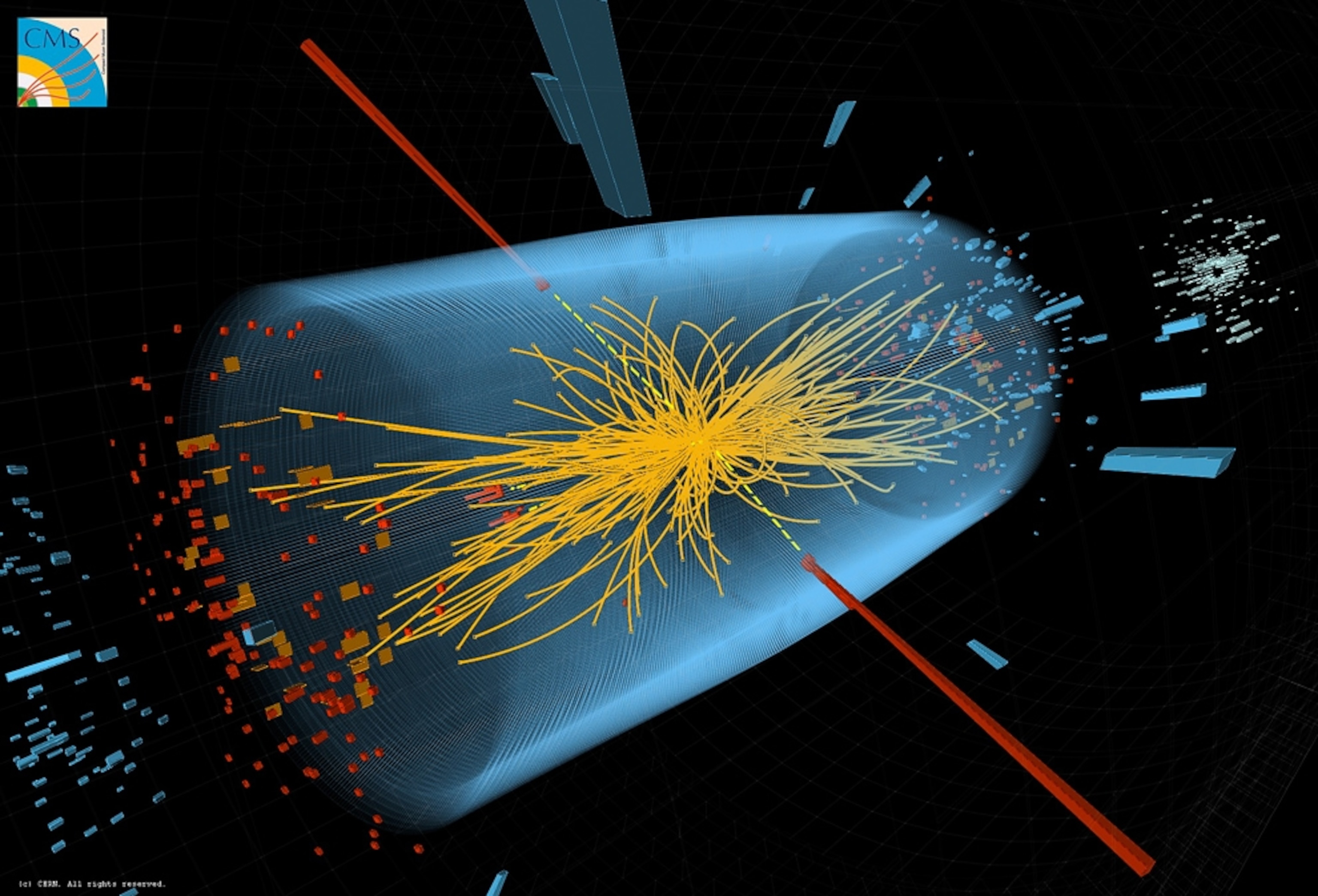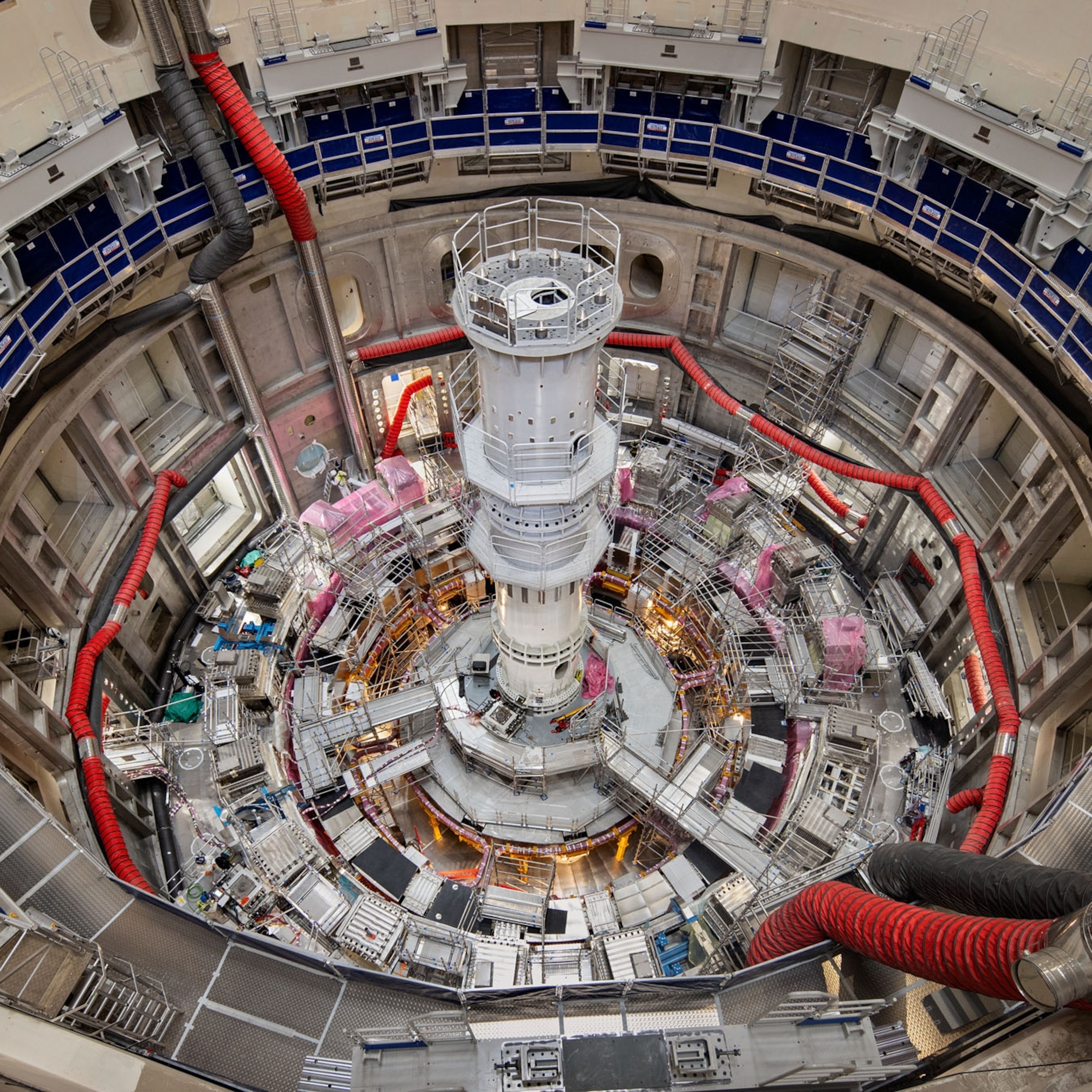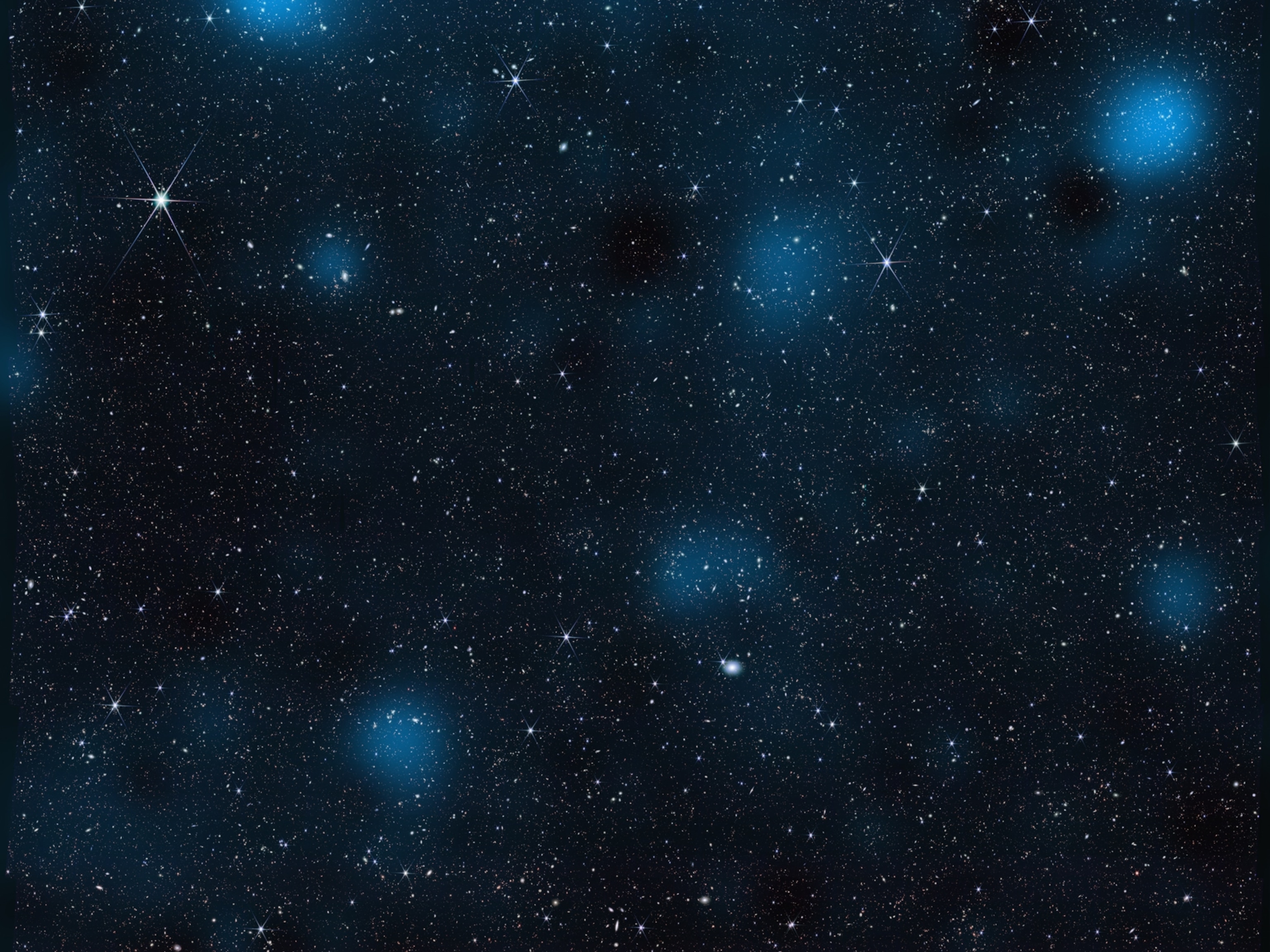
Hints of Higgs Boson Seen at LHC—Proof by Next Summer?
"God particle" could be found or disproved in 2012, expert predicts.
Physicists are hopeful that the long-sought Higgs boson is finally within reach, after two experiments at the proton-smashing Large Hadron Collider (LHC) observed tantalizing hints of the elusive particle.
Speaking today at a public seminar at the European Center for Nuclear Research (CERN) in Geneva, scientists with the LHC's ATLAS and CMS experiments presented data showing that the Higgs boson—if it exists—likely has a mass of around 125 gigaelectron volts (GeV), the unit of mass used by particle physicists.
"We have restricted the most likely mass region for the Higgs boson to 116 to 130 GeV, and over the last few weeks we have started to see an intriguing excess of events in the mass range around 125 GeV," ATLAS spokesperson Fabiola Gianotti said in a statement.
"This excess may be due to a [random] fluctuation, but it could also be something more interesting. We cannot conclude anything at this stage. We need more study and more data."
(Related: "'God Particle' May Be Five Distinct Particles, New Evidence Shows.")
CERN director general Rolf-Dieter Heuer later cautioned reporters that the results are preliminary.
"We still [need] many more collisions next year to get a definite answer to the Shakespeare question on the Higgs: To be or not to be?" he said.
David Evans is a particle physicist at the University of Birmingham and the leader of the U.K. team that works on the LHC's ALICE experiment, which is not involved in the Higgs hunt.
Evans said the ATLAS and CMS teams have done an "impressive job" of narrowing down the Higgs mass range, and that he expects more exciting results in the near future.
"By the end of next year ... they will have enough data to either discover the Higgs or prove it doesn't exist," he predicted.
Still Counting Higgs "Change"
Higgs bosons are thought to be extremely short-lived subatomic particles, so scientists can detect them only by spotting the particles into which the Higgs decays.
But just as a vending machine might return the same amount of change using different coin combinations, the Higgs can decay into different combinations of other particles. (Explore a Higgs boson interactive.)
What the ATLAS and CMS teams claim to have done is observe excesses of decay particles in the 116 to 130 GeV mass range—hinting that the Higgs could exist in that zone.
The CERN researchers say they have what they call a two-sigma degree of confidence, which translates to about a 95 percent chance that the results are not due to a statistical fluke.
But according to the very stringent standards of particle physics, an experiment must have a sigma level of five—or a 99.99 percent chance—to count as an official discovery.
(Related: "Particles Moved Faster Than Speed of Light?")
"We make so many measurements at the LHC that three-sigma effects show up quite often. I've seen three-sigma effects come and go," Evans said.
"So you really do have to have this five-sigma [level of confidence] before the community will accept it as a discovery."
LHC Well Suited to "God Particle" Hunt
Finding the Higgs boson has been a major scientific pursuit, because the particle is crucial to the standard model of physics—the incredibly successful theory that explains how fundamental particles interact with the elementary forces of nature.
Popularly referred to as the God particle, the Higgs boson was proposed in the 1960s by physicist Peter Higgs to explain why some particles, such as electrons and quarks, have mass while others, such as the photon, do not.
(Also see "Proton Smaller Than Thought—May Rewrite Laws of Physics.")
Higgs proposed that the universe is bathed in an invisible field similar to a magnetic field. If a particle can move through this field—now known as the Higgs field—with little or no interaction, there will be no drag and that particle will have little or no mass.
On the other hand, if a particle interacts significantly with the Higgs field, it will have a higher mass.
The idea of the Higgs field requires the acceptance of a related particle: the Higgs boson.
"In the standard model, if you have this new type of field, there must be a particle that goes with it," Evans said. "You can't have a field without a field particle." For instance, the particle associated with the electromagnetic field is the photon.
While the standard model predicts the existence of a Higgs boson to go with the Higgs field, it doesn't say anything about its mass, which is one reason why the hunt for the God particle has proven so difficult.
In fact, while most physicists think the Higgs is a single particle, others have proposed a non-standard Higgs model—called the two Higgs doublet model—in which the Higgs is actually made of five distinct particles with similar masses but different electrical charges.
But in the past few years, physicists think they have limited the possible mass of a single, standard-model Higgs to a very narrow range, one which the LHC—the most powerful particle accelerator yet constructed—is quite capable of searching. (See LHC pictures.)
"With the LHC, we know that we will either find the Higgs or prove that it doesn't exist," Evans said.
(Related: "Heaviest Antimatter Found; Made in U.S. Atom Smasher.")
According to Evans, the discovery of the standard-model Higgs would be a spectacular validation of the theory—and a find on par with the discovery of the electron by J.J. Thompson in 1897.
"People had been measuring and studying electricity up to that point, and then Thompson discovered the actual particle that was responsible," he said.
Higgs Search Is "No Lose" Situation
The next step for CERN scientists will be to conduct more proton-proton collisions to detect more Higgs signals and bolster their case.
Evans said he expects a conclusive result one way or the other as early as next summer.
Gianotti of ATLAS said that she would prefer that scientists find the standard Higgs, because "we as a community have been looking for for many years, and it would fix many problems in the standard model," such as why certain particles have their associated masses.
For Evans, though, a failure to find the standard-model Higgs would be even more interesting, because it would hint at completely new physics, such as a nonstandard Higgs. (Also see "Strange Particle Created; May Rewrite How Matter's Made.")
"To me," Evans said, "it's a no-lose situation."







